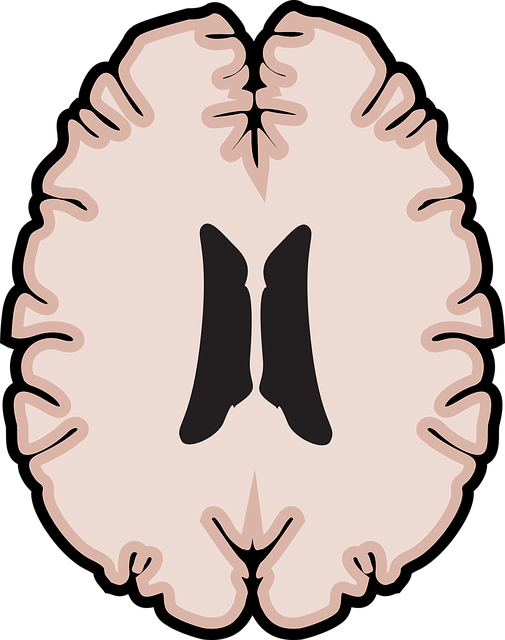Louisville Grief Counseling Therapy leverages diverse data sources – questionnaires, interviews, surveys, wearable devices, and mobile apps – for comprehensive mental health analysis. Advanced statistical methods uncover trends, correlations, and hidden patterns in emotional states, guiding evidence-based interventions and tailored treatment plans. This data-driven approach not only benefits clients but also informs Mental Health Policy Analysis, fosters burnout prevention strategies, and promotes a culture of improved mental well-being through personalized self-care routines.
Mental health data analysis is a powerful tool for understanding complex psychological trends. In this article, we explore the process of interpreting mental health data through various collection sources and advanced analysis techniques. From identifying patterns to uncovering significant insights, effective analysis empowers professionals like Louisville Grief Counseling Therapy to provide tailored care. We delve into practical applications, showcasing how data-driven insights enhance therapeutic practices, ultimately improving patient outcomes in a nuanced and targeted manner.
- Understanding Mental Health Data: Collection and Sources
- Data Analysis Techniques for Deeper Insights
- Interpreting Results: Identifying Patterns and Trends
- Applying Findings: Louisville Grief Counseling Therapy in Practice
Understanding Mental Health Data: Collection and Sources

Understanding Mental Health Data involves recognizing the diverse sources and methods of collection, crucial for effective analysis and interpretation. In Louisville, Grief Counseling Therapy services provide a rich source of data, offering insights into individuals’ emotional journeys and coping mechanisms. These therapies often include questionnaires, interviews, and surveys designed to capture mental health status, stress levels, and coping strategies.
Beyond traditional therapy settings, digital tools and applications have emerged as valuable sources of mental health data. Wearable devices track physiological markers associated with stress and anxiety, while mobile apps encourage users to self-report their emotional well-being. This wealth of information, encompassing both quantitative and qualitative aspects, empowers mental health professionals to identify trends, assess burnout prevention needs, and develop evidence-based techniques for emotional well-being promotion and coping skills development.
Data Analysis Techniques for Deeper Insights

In the realm of mental health data analysis, various techniques can be employed to gain deeper insights into individual and collective well-being. Louisville Grief Counseling Therapy, for instance, benefits from sophisticated statistical methods that allow therapists to quantify and qualify emotional states, identifying patterns that may otherwise remain hidden. By utilizing these tools, professionals can tailor interventions more effectively, addressing specific needs within the broader context of mental wellness.
Advanced analytics, coupled with Mental Health Awareness initiatives, play a pivotal role in enhancing Self-Esteem Improvement. Through comprehensive data analysis, researchers and practitioners can uncover correlations between various factors—such as stress levels, social connections, and life events—and their impact on mental health. This knowledge is instrumental in shaping evidence-based practices that foster Mental Wellness, ensuring that tailored strategies are developed to support individuals navigating complex emotional landscapes.
Interpreting Results: Identifying Patterns and Trends

When analyzing mental health data, one of the critical aspects is identifying patterns and trends within the collected information. This process involves careful interpretation of results to gain insights into various psychological conditions and their prevalence in specific populations. By delving into the data, researchers and therapists can uncover unique insights that guide evidence-based practices, such as Louisville Grief Counseling Therapy.
Recognizing recurring themes or anomalies helps in understanding the complex nature of mental health issues. For instance, analyzing trauma support services utilization rates over time might reveal seasonal fluctuations, indicating a need for adaptive healthcare policies. Similarly, examining burnout prevention strategies for healthcare providers can highlight high-risk groups or situations, leading to more targeted interventions. This analytical approach is vital in shaping Mental Health Policy Analysis and Advocacy efforts, ensuring resources are allocated effectively to address rising concerns.
Applying Findings: Louisville Grief Counseling Therapy in Practice

Louisville Grief Counseling Therapy can be a powerful tool in applying the insights gained from data analysis to real-world practice. After identifying trends and patterns in mental health data, therapists can tailor their approach to better serve clients experiencing grief and loss. This may involve incorporating specific mental wellness journaling exercise guidance into treatment plans to help individuals process their emotions and track their progress over time.
Additionally, the findings can inform the development of targeted interventions, such as burnout prevention strategies for healthcare providers who are at-risk due to high-stress work environments. By prioritizing self-care routines and utilizing effective coping mechanisms learned through counseling, these professionals can enhance their own mental health while continuing to offer compassionate support to others. Such an integrated approach ensures that both the therapy community and the broader population benefit from data-driven insights, fostering a culture of improved self-care routine development for better mental health.
Mental health data analysis offers a powerful tool for understanding complex human experiences, as demonstrated by the successful integration of these techniques into practices like Louisville Grief Counseling Therapy. By employing various analysis methods and interpreting results meticulously, professionals can uncover meaningful patterns and trends within mental health datasets. This allows for more effective treatment strategies and improved patient outcomes. Through continued research and application, data-driven insights will play an increasingly vital role in enhancing the accessibility and quality of mental health services.













